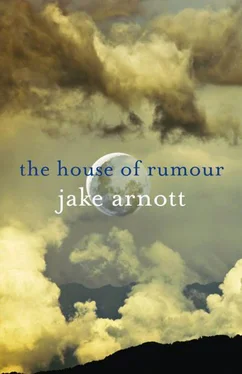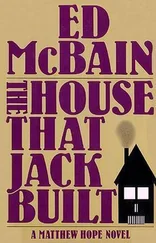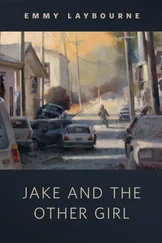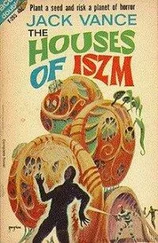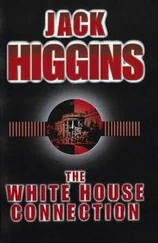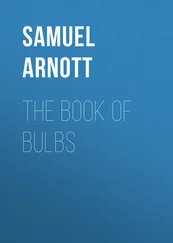Indeed, it was decided that the source of the nightmares was another realm entirely since their barbarity was inconceivable to our dominion. They must be a communication from another world, a distant star or planet. We do not doubt that there are worlds beyond our own and account it foolish to believe otherwise. So while our astrologers scanned the heavens for any new disturbance in the cosmos, others of us in Wisdom proceeded to our Great Library.
This treasure house often appears neglected amid all the palaces in Heliopolis and it is true that so much of our experience is read through life that we have scant need of it. The world is our book and our city a sublime school whose very walls form pages of knowledge (as children we learnt the alphabet from its walls as we walked around it). There may be endless volumes, copied with countless errors, but we can read from the one true original. The guardians of the Library have been working for many years on the Great Encyclopedia, and even they confine their individual study to a mere handful of books in a whole lifetime. It is said that it is not the reading that matters so much as the rereading. Nevertheless we cherish all books, especially the unread ones, for who knows what secrets they might yield one day? And as we count the world our book, might not other worlds be other books, strange and unprecedented?
So it was in the unfamiliar sections of the Great Library that we decided to search for evidence of life beyond our own reality. Guided by its guardians, we began an examination of works of speculation. The countless books consulted on this matter included: Lucian of Samosata’s True History, which describes journeys to the moon, the sun and the morning star; Of the Wonderful Things Beyond Thule by Antonius Diogenes, which contains similar references; Al-Farabi’s Al-Madina, al-Fadila featuring an ideal state; the Arabic grimoire the Picatrix, which contains an account of the miraculous City of Adocentyn with a central sun temple that projects planetary colours from its lighthouse; the Letter of Prester John, which reports an Earthly Paradise and various mirabilia: endless possibilities of other worlds and also the disturbing prospect of non-existence. We were particularly perplexed by Thomas More’s Utopia whose very title means ‘no such place’.
But while we in Wisdom seemed lost in futile scholarship, a vernacular narrative was emerging outside the confines of the Library. The whispered story of the man who had endured the worst of all tortures and kept silent had continued to circulate. Though we are loath to give credit to any rumour or heresy, in desperation we picked at any meagre fruits of the grapevine. And though no one had yet named or given any description of this supposed man, the nomenclature of his persecutors had been sporadically voiced as the ‘Congregation of the Holy Office of the Inquisition’.
It did not take us long to establish the nature of this body. Though we found many references to various holy inquisitions, this one was said to have been founded by the great hierophant of a city called Rome, a place distant in time and space. Many great philosophers were punished by this organisation. One who claimed rightly that the earth goes around the sun was shown their instruments of torture and forced to recant; another who wrote of a plurality of worlds in an infinite universe, of every star being a sun with its own planets, was burnt alive.
In time our attention was drawn to the life of the rebellious monk Tommaso Campanella who as a novice had been briefly imprisoned and tortured by the Inquisition for offences ranging from composing a blasphemous sonnet to harbouring a familiar demon under the nail of his little finger. He went on to engage in practices forbidden in that land: natural magic, astrology and the belief in heliocentrism. He led a revolt in the South that was both a revolution against worldly authority and an evocation of a great cosmological shift in the heavens, a mutazione in the local dialect of the rebels, that would bring about a paradise on earth. Guided more by the inspiration of portents and prophecies than practical strategy, the uprising was quickly suppressed.
Campanella was imprisoned once more and tortured more severely. His one defence against the penalty of death was to assert that he was insane, but in order to prove this he would have to face a dreadful ordeal. The test that the Inquisition used on one claiming madness was forty hours of la veglia. His torturers would watch all the while for signs that he was feigning his lunacy and wait for him to call out in confession. Tommaso Campanella survived. It seemed we had found our rumoured man.
If we felt something of a respite in locating the cause of our mental anguish, this relief did not last long. Soon came a foreboding of a deeper disquiet. Campanella was imprisoned for twenty-six years or more in appalling conditions of deprivation, yet his literary output during this time is remarkable. In the darkness of his cell he wrote or dictated in secret, risking further punishment by smuggling manuscripts out into the world. Many of his works were confiscated and destroyed; we examined what remained in the Great Library with awe and astonishment.
We know not whether the world was made from nothing or from the ruins of other worlds, but we certainly think that it was made and did not exist from eternity. We worship the sun and our unnamed creator and we do not question our origins. So it seemed a superstitious conjecture that many of Campanella’s sonnets appeared to be reworkings of our ancient folk-songs and that his philosophy of a sentient world was identical to ours. In his book on metaphysics he writes that man lives in a double world: according to his body, he exists in only so much space as is least required, held fast in prison and in chains; according to the mind, he is contained by no physical space and no walls; he is in heaven or earth, in Italy, in France, in America, wherever the mind’s thrust penetrates and extends by understanding, seeking, mastering. We found a description of hermetic magic that he practised to ward off the ill effects of the sun’s eclipse: in a sealed room two lamps and five torches were lit and hung to represent the planets and the signs of the zodiac — just as they are in our own solar temple.
A seditious memory threatened our right of permanence. Our provenance at once became momentary, fleeting, obscure. When we finally unearthed Campanella’s greatest work, The City of the Sun, it was with recognition rather than enlightenment that we discovered its pages to be blank. We knew at once what we had always known: that we are his book, his great vision of an ideal world.
The nightmares come no longer; the reality that conjured us has passed, as will all things. Tommaso Campanella composed our happy city from the depths of his suffering; our bright existence was conceived from hellish darkness. We cannot exist but as shadows of an imagined sun, letters that crawl like insects across this page. But we console ourselves that for our creator, words are not merely cyphers for the thoughts they represent; they have a power of their own; they are analogues of a divinised cosmos, evocative, charmed, incantational.
Larry came to visit in the afternoon. Mary-Lou didn’t know what to say when he asked her what she thought of the story. He had been so keen for her to read it that she had imagined it might reveal something urgent and emotional, some deep truth about himself. Instead it was some sort of conceptual parable. Clever and well crafted, maybe, but dry as dust. She couldn’t help feeling a little disappointed.
‘It’s wonderful,’ she told him, hoping that he would not detect the hesitancy in her voice. ‘It’s a great conceit.’
‘Well, Campanella’s notion of the world as a book, it’s something like the hologram theory.’
Читать дальше
